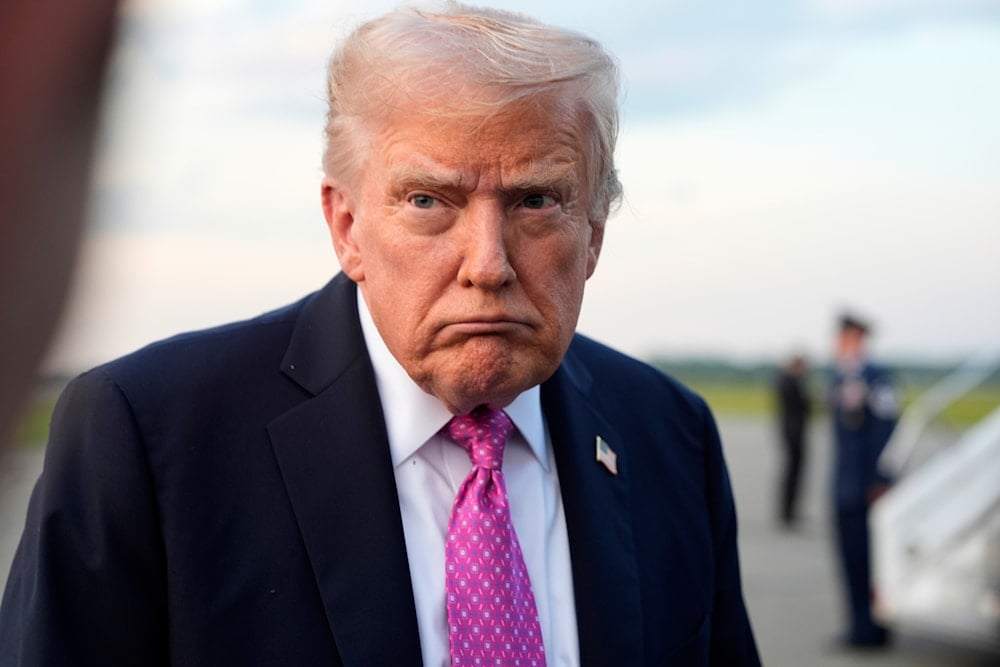Trump vows national emergency in DC over ICE dispute
US President Donald Trump threatens to declare a national emergency and federalize Washington DC after Mayor Muriel Bowser refused police cooperation with ICE.
-

US President Donald Trump speaks with reporters before boarding Air Force One at Morristown Airport, Sunday, Sept. 14, 2025, in Morristown, NJ. (AP)
US President Donald Trump announced on Monday that he would call a national emergency and federalize Washington, DC, following Mayor Muriel Bowser's statement that its police would not cooperate with Immigration and Customs Enforcement.
The central issue involves the provision of information regarding individuals who are living in or entering the United States illegally, and Trump's threat represents a further expansion of what critics have decried as federal overreach. This move has already resulted in more than 2,000 troops patrolling the city.
These comments follow several thousand protesters taking to the streets this month in response to Trump's August deployment of National Guard troops, which was intended to "re-establish law, order, and public safety" after he declared crime a blight on the capital. "In just a few weeks. The "place" is absolutely booming... for the first time in decades, virtually NO CRIME," Trump claimed on Truth Social.
Trump blamed "Radical Left Democrats" for pressuring Bowser to inform the government about the non-cooperation with ICE, adding that if the police halted cooperation with ICE, "Crime would come roaring back."
He added, "To the people and businesses of Washington, D.C., DON’T WORRY, I AM WITH YOU, AND WON’T ALLOW THIS TO HAPPEN. I’ll call a National Emergency, and Federalize, if necessary!!!"
Metropolitan police department under direct federal control
Earlier, Trump had placed the metropolitan police department under direct federal control and dispatched federal law enforcement, which included agents from Immigration and Customs Enforcement, to patrol the streets, though it remains unclear when their mission will conclude.
According to a report by Politico on September 8, the emergency security order enacted by US President Donald Trump in Washington, DC, was set to expire on September 10 after congressional leaders opted not to extend the measure.
On August 11, Trump invoked a "public safety emergency," which involved deploying National Guard troops and federalizing parts of the Metropolitan Police Department. He vowed the campaign would not stop in the capital as he pledged to "restore order" in other cities he described as crime-ridden, such as New York, Chicago, Baltimore, Oakland, and Los Angeles.
According to three congressional sources who spoke with Politico, House leaders have no plans to bring an extension vote to the floor, and although Republicans could potentially request one, Democrats possess the procedural means to block it.
Since the deployment, Attorney General Pamela Bondi reported that law enforcement in Washington detained 2,120 individuals and seized 214 illegal firearms.
The measures, however, sparked significant backlash locally. DC Mayor Muriel Bowser accused Trump of overreach, arguing the city did not require federal intervention. Residents and rights groups staged protests under banners such as "We Are All DC," denouncing what they called an undemocratic occupation. The DC attorney general also filed a lawsuit contending the order violated the Home Rule Act and Posse Comitatus Act, which restrict the military's role in civilian policing.

 3 Min Read
3 Min Read








